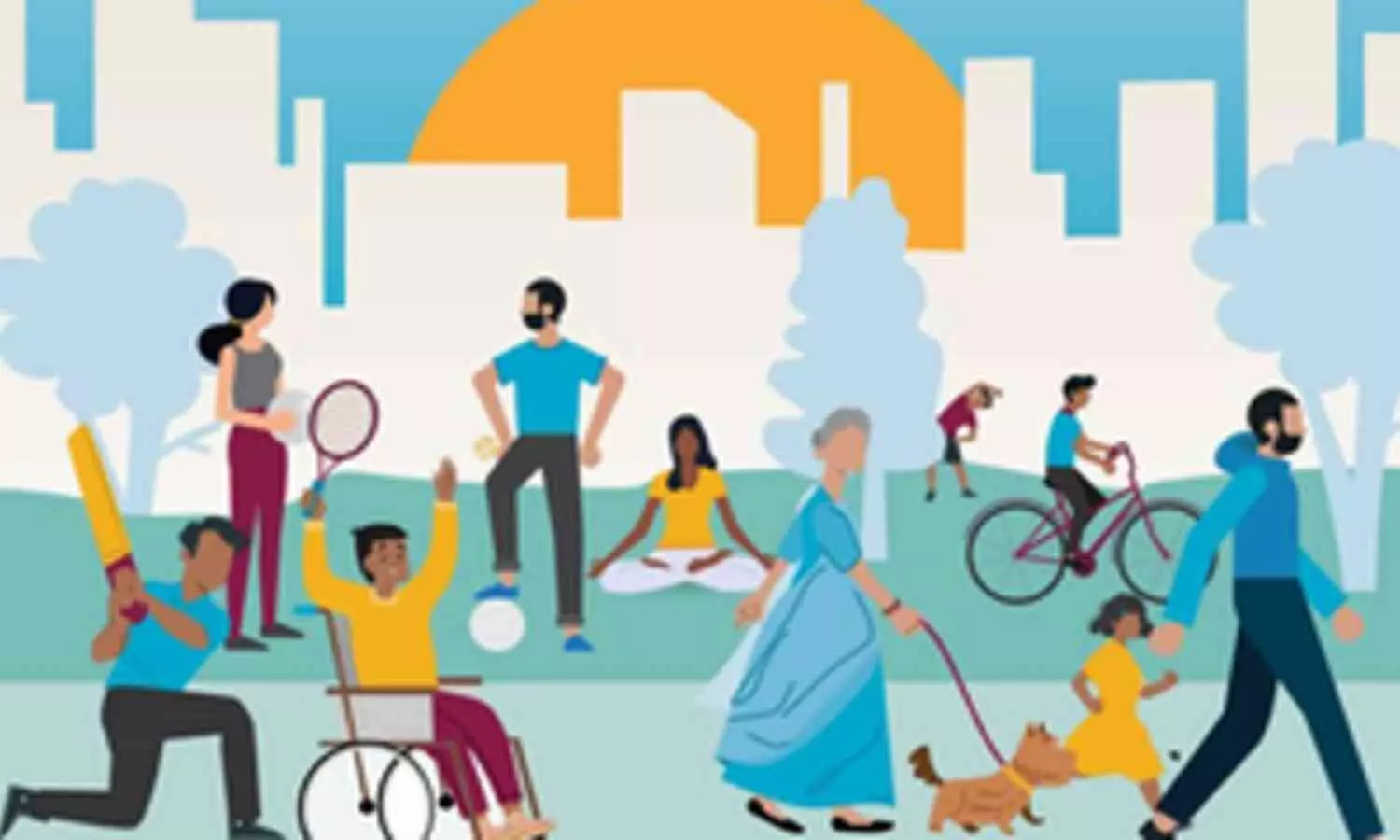Report: A Healthier India Could Boost GDP by Rs 15 Lakh Crore by 2047

Mumbai: A report released on Wednesday warns that India is facing a dangerously low level of physical activity, raising significant health concerns. It highlighted that increasing sports and physical activity in the country could contribute an additional Rs 15 lakh crore to the GDP by 2047.inactive state, health concerns, physical activity, sports, india, gdp boost, report, 2047, alarmingly low, economic impact
The report by Dalberg Advisors, a Global Consulting Firm showed that at least 155 million Indian adults and 45 million adolescents fail to meet the World Health Organization (WHO) guidelines on physical activity. The WHO advises that adults should get at least 150 to 300 minutes of moderate aerobic activity every week.
The report said increasing sports and physical activity in the country can prevent around 110 million adult cases of non-communicable diseases (NCDs).
It can also lead to 30,000 fewer suicides, and save about Rs 30 lakh crore in healthcare costs by reducing obesity, cardiovascular diseases, and mental health issues by 2047
Together, it can add Rs 15 lakh crore to the country’s GDP by 2047 -- the 100th year of independence, when India aims to become a developed economy.
This also includes the prevention of Rs Rs 250,000 crores in productivity-related losses due to fewer sick days and presenteeism related to illness, stated the report.
“If there is one thing we can control, it is how we take care of ourselves. Our physical health and well-being impact our quality of life and our contributions to society. As a nation, we’re far behind from realising the full potential of our people simply because we aren’t focusing enough on how frequently we move and engage in physical activity -- which is why we need to create external motivators, interventions, and greater access to encourage people towards sports and physical activity engagement,” said Gaurav Gupta, Global Managing Partner at Dalberg Advisors.
“At the grassroots, we need better schools, more playgrounds, and a new outlook that prioritizes physical activity as essential, not as optional or extra-curricular,” he added.
The report also highlighted a stark gender divide in how Indians engage in sports and physical activity -- on average, girls and women spend 5-7 fewer hours (about 20 per cent less) per week than boys and men. This gap worsens as we move into urban areas where girls are at the highest risk.
On the other hand, increasing sports and physical activity can bridge the gender divide, and help India “excel as a sporting nation”.
By 2047, boosting sports and physical activity in the country can motivate 11 million girls to pick up a sport for the first time, which is linked to improved agency and confidence -- potentially creating 600,000 additional women entrepreneurs and leaders.
The report showed that if India continues to stay inactive, by 2047, people will be at risk of “200 million more adult cases of NCDs, 45 million more obese adolescents, and additional annual healthcare costs of more than Rs 55 lakh crore”.


